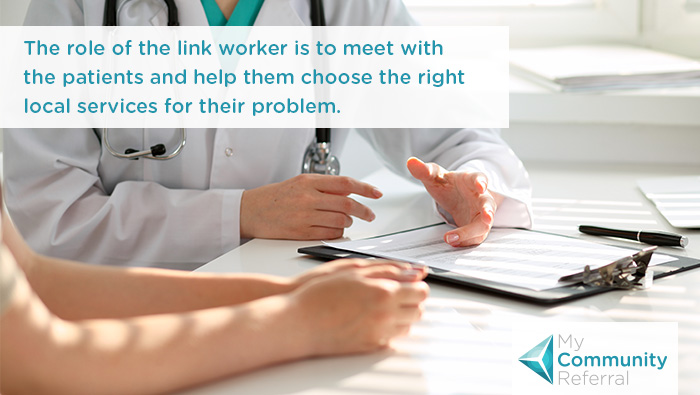Social prescribing is all about connecting patients to local, non-clinical services so they can improve their health and wellbeing. The role of the link worker is to meet with the patients and help them choose the right local services for their problem.
Though social prescribing models differ across the UK, all feature some form of a link worker. The patient will usually be referred to the link worker by their GP, even though the link worker could even be a nurse or staff member in the same office.
The link worker’s main responsibility is to help the patient identify the right local services for their condition. They will talk with the patient and understand what their problem is, before referring them to local services such as befriending services, gardening, art classes, financial advice and more.
In short, the link worker is there to help and empower the patient to take their first step in getting non-clinical support.
A link worker will be highly knowledgeable about local services and they will extend that knowledge to patients before referral. They will help patients make an action plan and encourage patients to take positive steps toward improving their wellbeing.
In some models the link worker will also maintain contact with local service providers, or care partners, for two reasons: to be aware of the latest services and any changes to existing services; and to monitor how referred patients are doing.
The link worker plays an important role in how social prescribing models are shaped. They offer patients peace of mind and confidence to seek community care. They also help navigate patients to the right local support that they so desperately need.
My Community Referral is a part of the social prescribing solution. We have developed an innovative platform that allows primary care professionals to connect their patients to local services without the use of patient data. For more information please contact us today.


Recent Comments